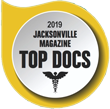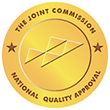Dr. Jeremy Mirabile, Medical Director at Recovery Keys and addiction and rehabilitation expert, recently sat down for his third interview on WBOB/600AM’s Ask the Experts show in Jacksonville, Florida on May 6th. To hear his insights and advice on addiction, listen now! Or keep scrolling to read the full transcript of the show.
Announcer: With offices in Jacksonville and St. Augustine, Recovery Keys is northeast Florida’s leading provider of addiction treatment and rehabilitation. Recovery Keys recognizes addiction as a disease, not a moral failing. Our team of Board-certified physicians and counselors are experts in treating individuals struggling with alcohol, drugs, and pain medications. Begin a new life free from the ravages of addiction. Call Recovery Keys right now at 904-834-4010. That’s 904-834-4010. To speak with our addiction specialist standing by ready to help, 904-834-4010.
WBOB AM 600 and FM 101.1 welcomes you to today’s Ask the Experts show. With local experts in the fields of legal, financial, health, and home improvement, each week our experts offer educational information on important subjects that affect your day-to-day living. Now, sit back and enjoy today’s Ask the Experts.
Roger Henderson: Hello, this is Roger Henderson, and you’re listening to the Ask the Experts program today. We are being joined by someone who’s doing a lot of good here in our area, Dr. Mirabile, Dr. Jeremy Mirabile, with the Recovery Keys clinics. They’re located in Mandarin and in the St. Augustine area. You help people who have what need?
Dr. Mirabile: Basically any addictions. Drugs and alcohol come to mind, but it can be other things, process addictions, we call them, with gambling, internet, relationship, work, things of that nature. But certainly, frequently, the alcohol and drug use.
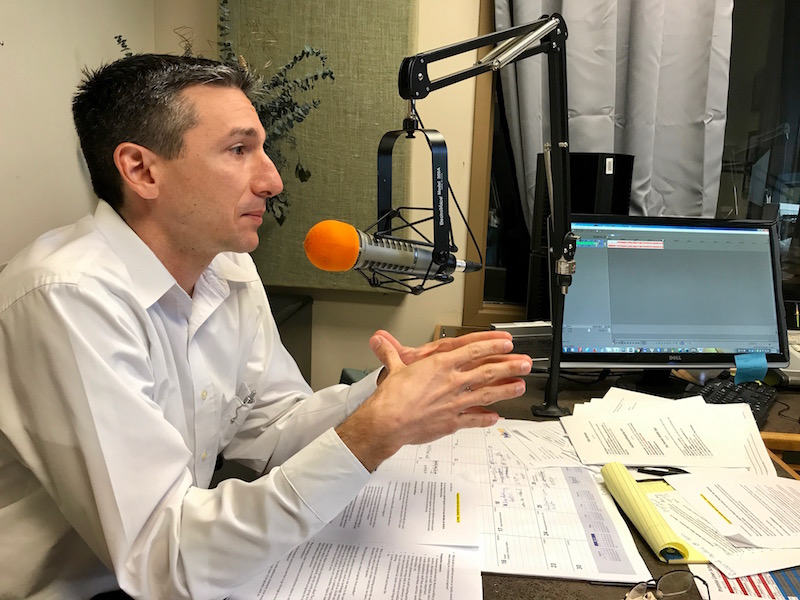 Roger Henderson: Yeah. Thank you for being here, and thank you for all that you do here in our community, helping families be as healthy as they possibly can. We were just talking a little bit before we got going, that many people get exposed to the entire addiction thing because of a traumatic physical event. They were hurt, maybe, in an automobile accident, and the doctor put them on pain medication, and before you know it, they’ve got a prescription drug medication addiction. Talk about that.
Roger Henderson: Yeah. Thank you for being here, and thank you for all that you do here in our community, helping families be as healthy as they possibly can. We were just talking a little bit before we got going, that many people get exposed to the entire addiction thing because of a traumatic physical event. They were hurt, maybe, in an automobile accident, and the doctor put them on pain medication, and before you know it, they’ve got a prescription drug medication addiction. Talk about that.
Dr. Mirabile: If I have a genetic vulnerability, and I might not even know it, and I get exposed to the right chemical that releases a larger amount of feel-good chemical than I expect, then I might become very, or overly, interested in that new chemical. It might be a substance I would never have tried in my whole life, and so it might kind of be a perfect storm, unlock the addictive pathway in the brain, and now I can’t get off of those medications, even if they’re prescribed by a doctor.
Roger Henderson: Because a lot of times these feel-good issues have a physiological, genetic base, would you encourage people, especially those who may have had a parent, or a grandparent, or an uncle who may have had an addiction issue, to maybe think twice about taking that type of medication?
Dr. Mirabile: Absolutely. I think it needs to be a risk-benefit analysis between you and your physician, assuming that the physician understands the disease of addiction. If not, I would recommend an evaluation by an addiction-certified physician prior to getting a prescription that could be high-risk for your genetic profile or your risk profile.
Roger Henderson: Yeah. There’s nothing like pain, and no one wants to live with pain. What are some of the other options people have, other than these very potent medications?
Dr. Mirabile: I think opioids, especially what we’ve learned from this crisis, should be more towards a last resort, and we should really look at other things, such as physical exercise, referrals to physical therapy, stretching, modalities that have shown some benefit in the literature, including acupuncture, other non-traditional things thought of, like biofeedback, self-hypnosis, massage therapy. Even exercise and very light strength training can be beneficial for chronic pain. Having centers, there are several, that do non-narcotic management of chronic pain, that would be one of the best places to start, and if I have to take medicine, really using non-scheduled or non-controlled substances to see if I can get relief.
Roger Henderson: My wife was in an accident a couple of decades ago, and has had some problems, physically, with pain in different places ever since, and she said one of the most effective treatments that she tried was acupuncture. Have you seen any people use those types of treatment?
Dr. Mirabile: Absolutely, yup. Very effective, for anything from low back pain, to hip pain, to neck pain, post-motor-vehicle pain, post-surgical pain. Maybe they had a flare up of zoster or shingles, and then I’m looking for modalities for chronic relief of that, or TMJ, fibromyalgia. These sort of things can respond, a lot of the time, if done in combination to multiple modalities that don’t include narcotics. It includes a proper sleep regimen and exercise regimen, and certain other things like acupuncture, and massage, and maybe hypnosis, biofeedback, stretching, and other things like that that can help you.
Roger Henderson: Yeah. We really want to talk to the people who may not have made those choices, and they’re in a situation right now where they really need help, because they’re now addicted to, whether it be prescription medication, or maybe some type of illicit recreational drug, or maybe alcohol. Talk about the pathways to their treatment and their recovery.
Dr. Mirabile: First of all, there is a way out. There is hope. Just because I’ve got to this part and I never thought I would get here, just because I’ve become the person I never thought I would be, just because I’ve done things I never thought I would do, that is not a hopeless situation. In fact, it is prime time to get help and to be evaluated. This is the fulcrum, if you will, the turning point, where I can use these experiences I’ve had, if they’ve been negative, to actually fuel my recovery. I actually have found, in practice, that it’s quite useful to have someone who’s experienced some difficulties and hardships at the hands of these substances and these behaviors, that can be used to fuel their recovery. It’s almost like turning a bad into a good. The more pain and difficulty that I’ve had is potentially, prognostically, more chances of my longterm success in putting this disease into full remission.
Roger Henderson: Yeah. That’s good to know, that people, there is hope, because left untreated over the longterm, the outcome is not very bright. You’re here to help people. Dr. Mirabile has two clinics in the area, in St. Augustine and in the Mandarin area. You can learn more about his practice at recoverykeys.org. That’s recoverykeys.org. Reviewing your rehab program, it’s interesting to see an array of medical and clinical professionals, from doctors, therapists, and licensed social workers, and even a nutritionist. We hear the word multidisciplinary when referring to addiction treatment. Talk about what that means.
Dr. Mirabile: Multidisciplinary means that you have the leverage and the expertise of many different disciplines and skill sets coming to bear on treating the disease. It’s very effective, in fact most effective, to have this modality when treating this condition, because some individuals learn through other techniques better than others. For example, having a conversation with somebody 20 years in recovery and explaining some very practical day-to-day things may be just what somebody needs, versus a lecture from me or an addiction medicine doctor on the Board that talks about neurotransmitters in the brain. We really need to kind of marry the two, and have experts in both fields give everything I can, and also, potentially a family therapist to help my family understand what is the best way to relate to me as I heal.
Roger Henderson: Recently I heard of something called medication-assisted rehabilitation, and just by hearing the phrase, I’m thinking that means that a doctor like yourself would give someone one medication to help them get off of another. Talk about that.
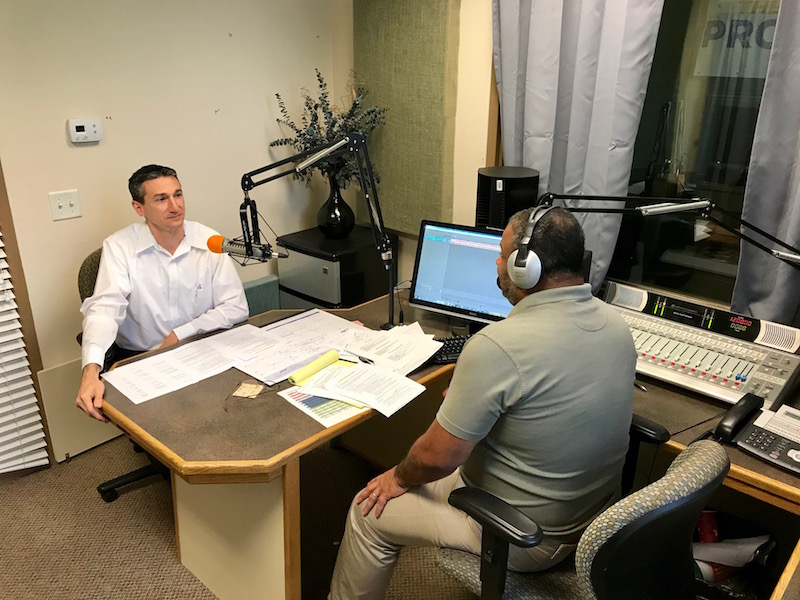 Dr. Mirabile: Medications are a tool in the right hands. Medications can work against the situation if in the wrong hands, or not in a trained professional. We use the term, actually, medication-assisted recovery, because we want them to do all of the work and behaviors required for a recovery program and full remission of their disease. When somebody comes into treatment, fresh off of using or having their addictive cycle in full swing, they are depleted emotionally, mentally, physically, spiritually. We call it bio-psycho-social model in a multiple area of … Multiple areas been affected by their use. We basically have to start from scratch and build things up.
Dr. Mirabile: Medications are a tool in the right hands. Medications can work against the situation if in the wrong hands, or not in a trained professional. We use the term, actually, medication-assisted recovery, because we want them to do all of the work and behaviors required for a recovery program and full remission of their disease. When somebody comes into treatment, fresh off of using or having their addictive cycle in full swing, they are depleted emotionally, mentally, physically, spiritually. We call it bio-psycho-social model in a multiple area of … Multiple areas been affected by their use. We basically have to start from scratch and build things up.
When they come in, we need a medication, often, to make the fight a fair fight. It’s really not reasonable to expect someone to do all the amount of therapy, learning, and participation in individual therapy, group therapy, and community support-type stuff that we want them to do if they’re withdrawing, if they’re craving too strongly, so these medications assist in that early process of healing, so that I can actually listen, so that I can concentrate, and they are adjuncts to the whole program.
Roger Henderson: If someone is suffering from an addiction, a chemical addiction, do they necessarily have to check in and sleep at the clinic, move out of the house, or how does that work? Do they have to stop work for 90 days?
Dr. Mirabile: That’s one of the great things about Recovery Keys. Our treatment center offers folks a comprehensive evaluation, so we can determine the appropriate level of care. For some individuals, where I don’t have a supportive home environment or really a place to live at all, that may be a requirement, to have go live somewhere. But nine times out of 10, and even more severe cases, if I can get some family support and some involvement, or at least a clean and sober place to live while I do treatment, we can effectively treat folks with very severe forms of this disease on an outpatient basis. It is a time commitment. They may need to come for four to five hours a day, five days a week, for a period of time, but we can do some very effective treatment on an outpatient basis, and not have to have them go away to a treatment center and sleep overnight to get this put into remission.
Roger Henderson: Learn more about what Dr. Mirabile offers when you visit his website, recoverykeys.org, recoverykeys.org. Obviously, you’ve been in practice for a while. You’ve got two clinics here in the area, that it’s helping a lot of people. You have a success track record here. What does recovery look like?
Dr. Mirabile: Nothing short of a change in lifestyle, and basically, joyous, happy, and free, once again. I can put my disease into remission so that I’m not a slave to chasing stuff that really doesn’t matter. I can restore relationships. I can have enjoyment in activities that I used to enjoy but have lost that meaning. Recovery allows me to enjoy a sunset, enjoy hobbies, have close relationship with friends and family. It’s really the absence of those self-destructive behaviors that have accumulated shame and guilt, and really are the gasoline, the fire, the fuel, for the disease, is that shame and guilt. When I’m in recovery, I’m basically open, honest, and willing, and basically living a new way.
Roger Henderson: What are the short-term and longterm milestones that someone on the path of recovery is seeing? When you see them initially, they can’t stop it. They drink consistently, or they’re taking recreational drugs, and they can’t stop, or they’re taking a fistful of pills the doctors may have written a prescription for, but they ended up with extras. Talk about some of the milestones you see.
Dr. Mirabile: The first step is to get a comprehensive evaluation, and then potentially to detox or withdraw from those. It’s very dangerous for someone to withdraw or detox on their own, so medically-assisted withdrawal management, using medications, is of primary importance. Once we get things stabilized so that I’m not going to have a seizure or I’m not going to potentially die from withdraw, then I can begin-
Roger Henderson: Can that happen?
Dr. Mirabile: Absolutely, yup, particularly alcohol, benzodiazepines such as Xanax and Valium, if those things aren’t tapered down. Opioid withdraw is exquisitely painful. Certain vulnerable segments of the population can also die in opioid withdrawal. It’s not a routine thing, but if I’m in the younger age range, as in children and adolescents, if I’m in elderly or I have a co-occurring physical medical condition that puts me a bit more fragile, I could have serious consequences from opioid withdrawal, too.
Roger Henderson: We also talked about the danger of mixing different types of medication that may be doctor-prescribed, or even having a glass of wine with your medication that you should be taking, could end up costing someone their life.
Dr. Mirabile: Absolutely.
Roger Henderson: Yeah. Very interesting and good information we’re learning today. Dr. Mirabile is here with us. He operates the Recovery Keys clinics in our area. Learn more about what he offers at recoverykeys.org. That’s recoverykeys.org. Talk about shame. What are some of the things that stop people from seeing someone like you?
Dr. Mirabile: The myth that this is a willpower issue, that I can just stop, or I should be able to stop, and then I’ve had to do things to supply my habit that I’m not proud of, from a biologic standpoint, it’s part and partial to disease, so there should be no shame or guilt, but I’ve done these things and that’s how I feel. That’s how my patients come in to treatment. We like to move that feeling of shame and guilt. We want to squash it down and move it over, more to shock and awe. The shock and awe piece is more or less at the power of this illness, that I’m really coming to grips with the fact that this is a powerful, medical condition that needs my attention, my respect, and full treatment. Without that respect, I’m going to forget that I have a medical disease in the first place, and then relapse is likely. That’s a very important part of treatment, is that we kind of bring that shame and guilt down and out, and that we move it over to this appreciation of the power of the illness, and then a willingness to then take care of it as I move forward and remember that I have this medical condition and it needs treatment.
Roger Henderson: You use the word disease a lot, and I think if people really understand the definition of what a disease is, it can be liberating, and it could relieve them of a lot of the embarrassment.
Dr. Mirabile: Yes. When we look at medical conditions and we use the term disease, we can describe it in many ways. One is, is the condition chronic, progressive, and potentially fatal if not treated? If we look at diabetes, if we look at lupus, if we look at addiction, they kind of meet that criteria: chronic, progressive, and fatal. It has the potential to shorten my lifespan. The other thing is, folks who are out there potentially listening or suffering with the condition, if I’m honest with myself and I look back over five years or two years, can I honestly say that this condition is worse today than it was years ago? It’s sort of another mark of the chronicity and the disease model. Another interesting way to use the word disease is distance from ease. Anything that brings me comfort is what’s going to kind of draw my attention, because I am not comfortable with that distance I have from ease.
Roger Henderson: Okay. We’re here with Dr. Mirabile with Recovery Keys. The website is recoverykeys.org. If you or someone you love is suffering from an addiction, he is here to help, and it’s worth it, if someone is struggling with this, because absent some intervention, their life doesn’t really have a powerful outcome, and it affects everyone in the family.
Dr. Mirabile: Absolutely.
Roger Henderson: Talk about the affordability, insurance. Is this something that’s commonly accepted at your clinic?
Dr. Mirabile: Yes, and particularly on an outpatient basis. Most insurance providers cover mental health and addiction evaluation and treatment. There are several options when it comes to care if … Our clinic, Recovery Keys, accepts insurance, but we are not technically in-network or on the panel, so there may be some additional costs that someone incurs for that, but there are providers, community-based providers who have sliding scales, and they can get help for this illness, regardless.
Roger Henderson: Talk about the, what’s called commonly the gateway drugs. Last November here in Florida, the voters overwhelmingly approved a constitutional amendment that expands the use of marijuana for medical treatment. For someone like you, who very often treats people who are addicted, you see how they ended up where they are right now. What’s your take on that, and your perspective, from a professional perspective?
Dr. Mirabile: What a bad idea. The first time in history that we have taken a popular vote on a medicine. Medicines are typically put through the Food and Drug Administration, FDA, studied, and then rolled out through a process of phased trials that check the consistency and the safety of the product before it’s marketed to the general public. What we have here is basically a popular vote and a product that is, under the guise of a medicinal use, going to be rolled out from dispensaries and other places that really have very loose checks and balances on quality and substance.
That’s not to say that there are not places in which cannabinoids, or cannabis, or marijuana can be used. In fact, just according to the data, probably close to 70, 80% of the population could use it without much significant harm to themselves. However, a recent consensus guideline from the National Academies of Science was published in January of 2017 and indicates there are very few, if any, documented, appropriate medical uses for cannabis or medical marijuana at this time. There appears to be more risks than benefits in general, and particularly in the field of mental health and addiction.
Roger Henderson: Is marijuana something people can become addicted to?
Dr. Mirabile: Absolutely. The new diagnostic … Well, it’s not new any longer. It’s been out several years. The diagnostic and statistic manual for psychiatrists, it’s called the DSM-5, lists cannabis use disorder, mild, moderate, severe, as a true addictive disorder. It also lists cannabis withdrawal syndrome, that there is withdraw from chronic, daily use of cannabis, and experience physical discomfort and symptoms. I’ve had and treated patients whose drug of choice was cannabis. They didn’t use other drugs and they stayed right there, and it caused them to throw away a scholarship, caused them to throw away a job, caused them to throw away relationships in their life, and they had negative consequences to their cannabis use.
I’m not saying that that’s everyone, and I’m not saying that the prevalence is there, but when we make it readily available, almost like cigarettes are, or alcohol is, I don’t know that that’s going to help on a societal standpoint. Making something more readily available has its downfalls. One of the things we have in literature is evidence that the younger we begin using drugs or alcohol, the more likely that in adulthood we will have a problem with a substance. This is one of those things that, God forbid, more younger folks get exposed to cannabis because it’s readily available, that we would have probably an increased prevalence, and rates of addiction, as we move forward.
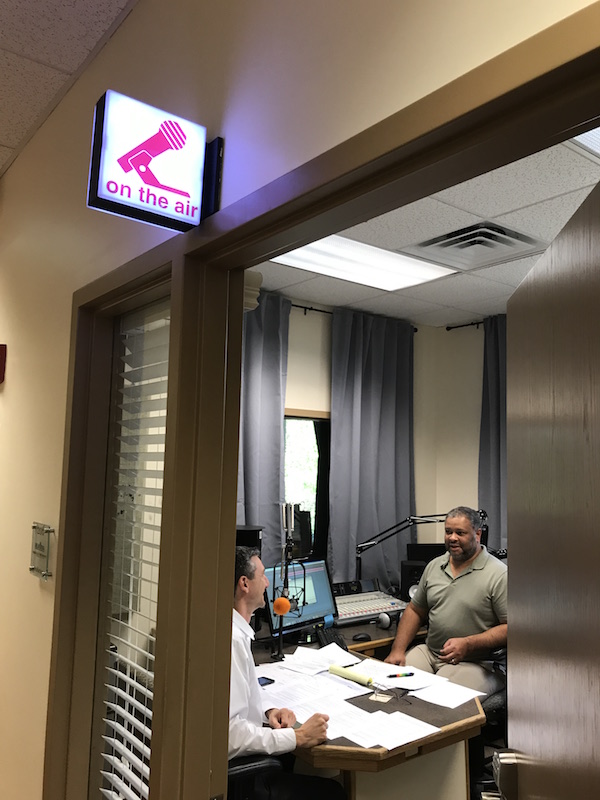 Roger Henderson: We were talking off the air a moment ago, before we began, that I’ve got an in-law who started off smoking marijuana as a teenager, and in his adult life decided to self-medicate some of the stress he was going through with crack cocaine. Do you find people, if they’ve been introduced to a drug like marijuana, are more likely and comfortable with experimenting with something like crack?
Roger Henderson: We were talking off the air a moment ago, before we began, that I’ve got an in-law who started off smoking marijuana as a teenager, and in his adult life decided to self-medicate some of the stress he was going through with crack cocaine. Do you find people, if they’ve been introduced to a drug like marijuana, are more likely and comfortable with experimenting with something like crack?
Dr. Mirabile: Yes. It is a gradual progression. Once I’ve made it okay to inhale burnt particulate matter into my lungs, then the next step is to inhale something else into my lungs, and it’s kind of these lines that get crossed that I never thought I would cross, but I still don’t feel quite right inside. My brain chemicals aren’t just right, and I want to feel better. I want to feel different. It is a gateway drug.
Roger Henderson: We’re getting really good information today with Dr. Mirabile. If you’d like to talk with him, learn more about what his practice offers, you are invited to visit their website. It’s recoverykeys.org, recoverykeys.org. Before we wrap up, one of the most serious problems that even the media is reporting on now, here in the state of Florida, the problem of opioids. I would imagine these are prescription drugs that people are getting, maybe even black market, and they’re becoming addicted to, and they’re causing major problems with people and wrecking families.
Dr. Mirabile: Absolutely. It started with over-prescribing in general, and having pill mills that were set up to dispense large amounts of these opioids. In 2011, roughly, there was a legal crackdown on these clinics, and so a lot of them closed, but we were left with a large number of folks addicted to them. Same thing, what appears to be on the horizon, with cannabis, but the opioids are even more powerfully addictive than cannabis is. So we had a large number in 2011, 2012, who had been started on and addicted to these opioids, and now what?
The cheaper alternative that’s more available is heroin. A lot of folks who never thought they would go there, they were using pharmaceutical-grade, prescribed oxycodone, hydrocodone, hydromorphone. Now it’s basically readily-available, cheaper-type heroin, that is now laced with an even more powerful opioid. Heroin, in and of itself, is an opioid, but there’s another one, synthetic, called Fentanyl, and Fentanyl has been shown to be prevalent, to be found inside of heroin nowadays that is coming across the border and being manufactured here in the United States. That additional piece causes a higher level of risk. Most recently, Duval County has had a backup in the morgue, actually, because of the number of overdoses related to heroin and heroin laced with Fentanyl.
Roger Henderson: Roger Henderson of the Ask the Experts program, and Dr. Mirabile has joined us today. Recoverykeys.org is the website. What are some of the myths, Doctor, that people sometimes will accept as truth, that lead them to doing some things that end up putting them in a bad place?
Dr. Mirabile: We hear all the time, “I’ll try anything once.” If any advice I could give to the general public, is that’s not good advice. If I happen to try a substance like powder cocaine, or smoking cocaine, or something, and it unlocks a certain thing in my brain, I could be potentially hooked on it, and the disease of addiction could run rampant, and I could forego all the things that I care about that are near and dear to me in life. That whole idea about … There is some prudence in avoiding certain substances that can release excessive amounts of pleasure chemicals in the brain, because I’ll forget everything else.
Roger Henderson: And the other myth?
Dr. Mirabile: I’d say the other myth is, as long as my child uses a substance at home or under my guidance, then that’s safer than if they were to do it out in the street. Medical literature now is pretty clear about the age of onset of first use, meaning if I start using drugs or alcohol in the adolescent stage, 14, 15, 16, and I continue that, or any exposure to drugs or alcohol, and yes that includes cannabis, and yes that includes all scheduled medications, then the more likelihood, later on in life, I’m going to have a problem.
Roger Henderson: One of the fears that people may have, when seeing someone like you, are you required to let law enforcement know that someone’s being treated?
Dr. Mirabile: That’s a good question, and no, there’s no obligation to … This is a medical condition, so we don’t have reporting requirement through a legal channel that way, but we do have duty with regard to if the person is going to harm themself or harm somebody else, just with regard to legal issues. It’s more of a medical situation than a legal one.
Roger Henderson: So if they just want to get help, they’re safe talking with you.
Dr. Mirabile: Yup.
Roger Henderson: Okay. Learn more about Recovery Keys online. That’s recoverykeys.org, recoverykeys.org. Thank you so much for spending the time with us today. We’ve learned a lot, and we hope that people who may be struggling with an addiction or maybe a family member of someone who’s struggling with addiction will get in contact with you through your website, recoverykeys.org.
Dr. Mirabile: Thank you so much, Roger.
Announcer: Let’s return to today’s Ask the Experts on WBOB AM 600, and FM 101.1, The Answer.

